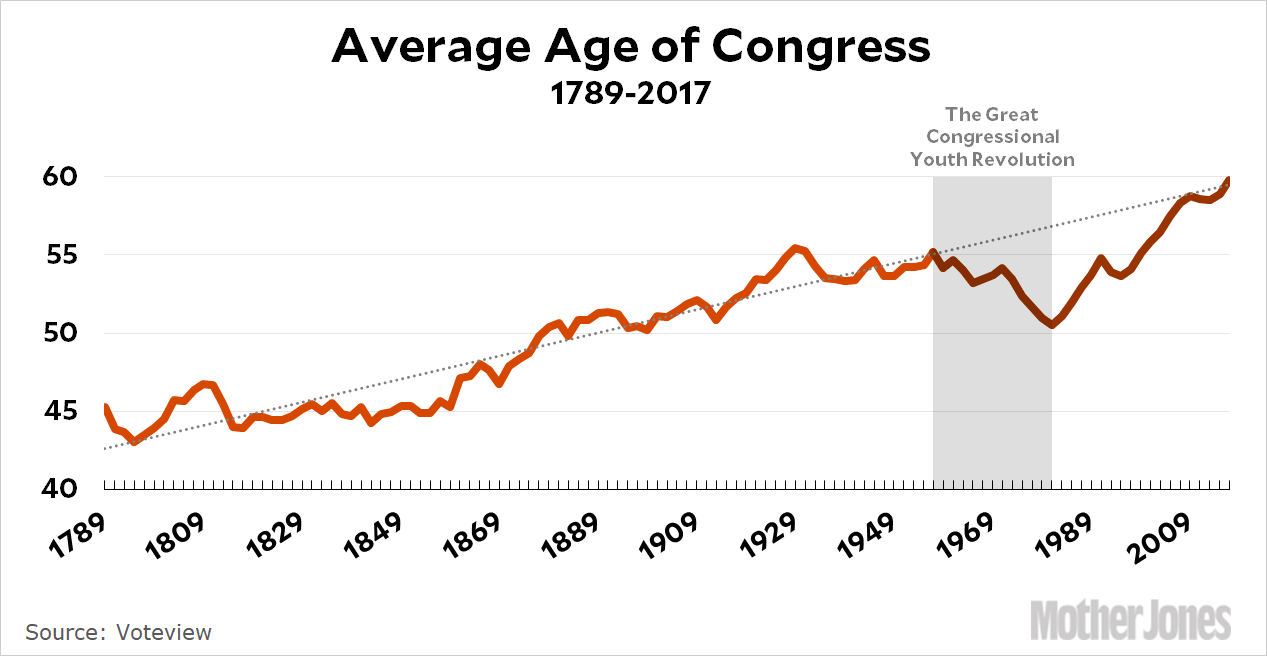Evan Soltas is concerned about the graying of Congress:
The average age of the U.S. Congress has risen by almost 10 years since 1980, an increase of historic magnitude. More data analysis of Voteview bios (https://t.co/kZzRgEjkra). pic.twitter.com/I353uIK7nK
— Evan Soltas (@esoltas) April 26, 2018
Looking at these charts, I got curious about something. The age of Congress increases steadily from the beginning, just as you’d expect given lengthening lifespans. But then there’s a sudden drop in age from about 1958 through 1980. So what would Congress look like if there had been no decline and average age had continued to go up as it had for the previous 170 years? Like this:

We’re right where we ought to be. Life expectancy at age 30 has gone up about 15 years since 1789, and the average age of Congress has also gone up 15 years. So there’s no mystery there. The real question is, why was there a sudden drop over the 20-year period from 1958-1980? Perhaps something related to the World War II generation getting old enough to run for Congress? Followed up later by the post-Watergate congressional classes? Anybody got any other ideas?













